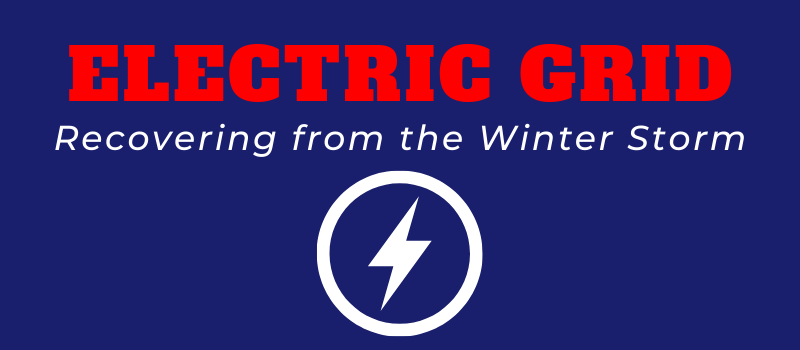|
|
Dear John,
The Texas Legislature has adjourned sine die, meaning without any further date. Over the next few weeks in this multi-part Sine Die edition of the Bucy Bulletin we'll cover big items like the budget, the electric grid, and the state of voting rights, as well as discuss the good, bad, and ugly of the 87th Legislative Session, highlight some of our favorite moments, and provide an update on the status of our legislative agenda. Today's version focuses on the budget, the winter storm, and the electric grid.
I am so grateful for this opportunity to serve you, House District 136, and the people of Texas. Please do not ever hesitate to reach out if you have any questions or comments or if there is anything my office can do for you.
All the best, |
|
|
John H. Bucy III State Representative House District 136 |
|
|
|
THE BUDGET |
|
Every two years, the legislature is only required to pass one bill: the state budget. This legislative session, we passed a $248 billion budget for the next two years that addresses healthcare, public education, housing, disaster recovery, property taxes, and infrastructure.
Highlights from this biennium’s budget include:
|
|
|
|
WINTER STORM URI |
|
While the Winter Storm was ongoing my office worked with local elected officials and state agencies to get power and water back on and food, water, and other supplies sent into western Williamson County. Some of our efforts in this regard included:
|
|
|
In addition to constituent services and helping with response efforts, as a policymaker, my biggest responsibility was to look at legislation aimed to ensure nothing like this happens again. With the filing deadline coming just after the storm hit, we went to work on developing proposals.
I'm most proud of H.B. 3711, which would create a medically fragile registry and establish procedures for wellness checks to be conducted by local jurisdictions in times of disaster. The registry would include those with Alzheimer's, on dialysis, dependent on oxygen, diagnosed with a debilitating chronic condition, or who have a medical condition that requires 24-hour care from a skilled nurse, who voluntarily opt themselves in to wanting a wellness check, which would be conducted by an automated text or phone call, a live phone call, and then an in person visit if there is still no response by the registrant.
I was able to work with Chairs Stephanie Klick and Dr. Tom Oliverson as well as Sen. Lois Kolkhorst to amend the provisions in full into S.B. 968, which has been sent to the Governor for his signature. While many times the Legislature can feel more and more like Washington, I was honored to work in a bipartisan fashion with my colleagues to get this done.
My office also filed legislation to establish best practices and procedures for weatherization for power generation companies, electric coops, municipally owned utilities, and transmission and distribution utilities in the ERCOT power region. H.B. 4224 would have also provided for requiring these entities to submit plans reflecting changes and improvements to their facilities as well as regular inspections and enforcement by the Public Utility Commission to ensure compliance.
Other bills filed included H.B. 2861, which would have classified dialysis centers as critical infrastructure in order to try and keep them online in times of load shed and have them prioritized in restoration of power if they do go offline, as well as H.B. 4225, which would have required dialysis centers to have a back-up generator on site. |
|
|
|
THE ELECTRIC GRID |
|
Texans faced one of its toughest winter storms on record this past February, with its impact revealing how our electric and gas supply chains are vulnerable to extreme weather conditions. Among the many problems resulting from the storm, the Electric Reliability Council of Texas (ERCOT), as well as many electric and gas companies, are facing high amounts of debt. We addressed this issue by passing H.B. 4492, which allows electric companies to finance up to $2.1 billion for electricity that was paid for, but not received, during the storm. ERCOT will also receive an $800 million loan through the State Economic Stabilization Fund, to pay for debts to the grid operator.
This lack of weatherization for all gas suppliers is concerning, as ERCOT found that failures in the gas supply chain may have accounted for at least one fifth of freeze related power outages during the storm. Furthermore, the timeline for the weatherization of these facilities is unclear. Without a strict deadline for facility upgrades, we cannot guarantee that improvements will be fully operational by the next weather emergency, potentially putting Texans at risk. But even though these bills may not solve every issue with the power grid, they open the door to future policy reform that I hope will prevent Texans from having to face another tough winter storm in the dark. |
|
Political advertising paid for by John Bucy Campaign, Hon. Heather Jefts, treasurer. |
.png)


.png)
.png)
